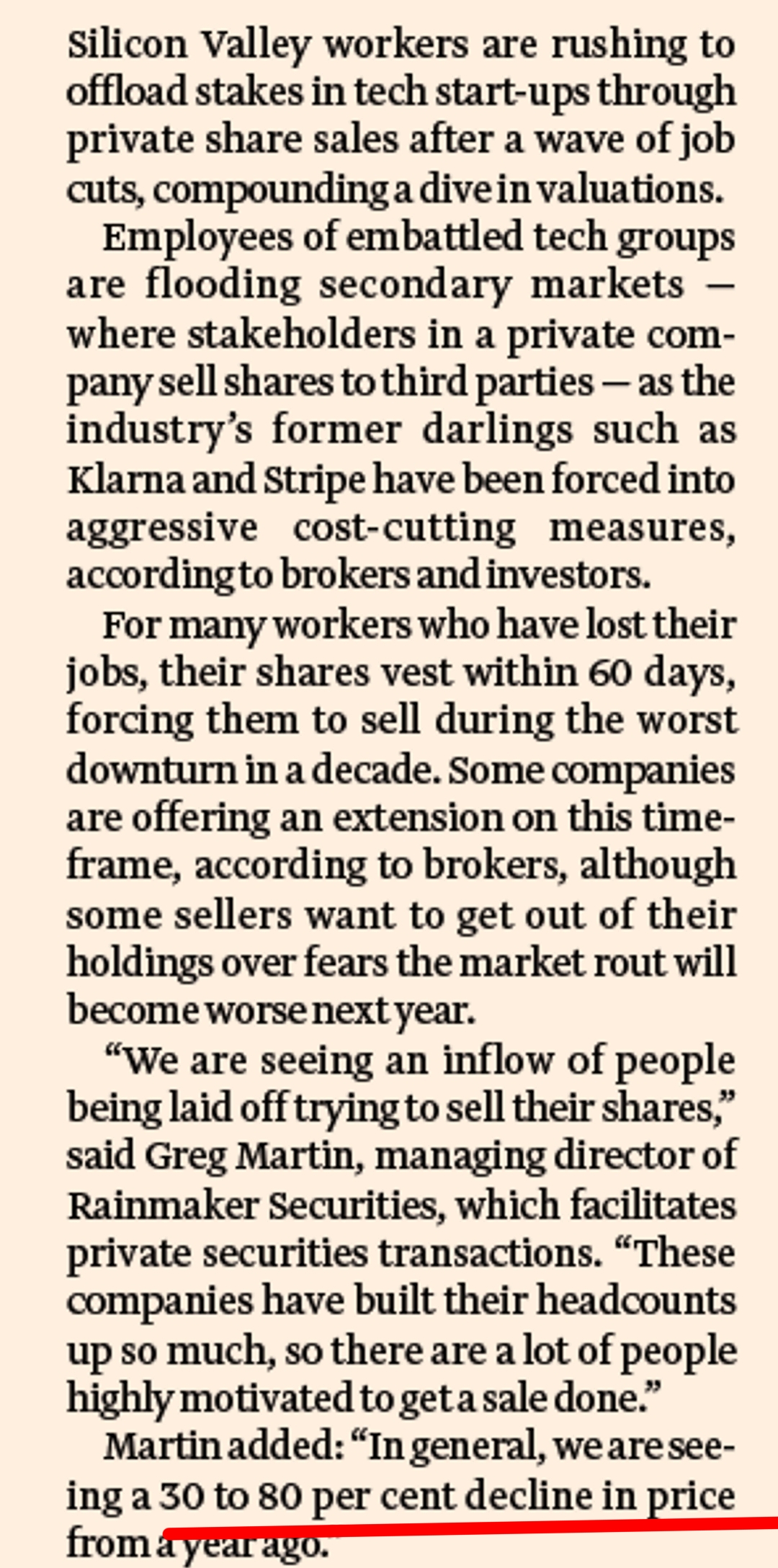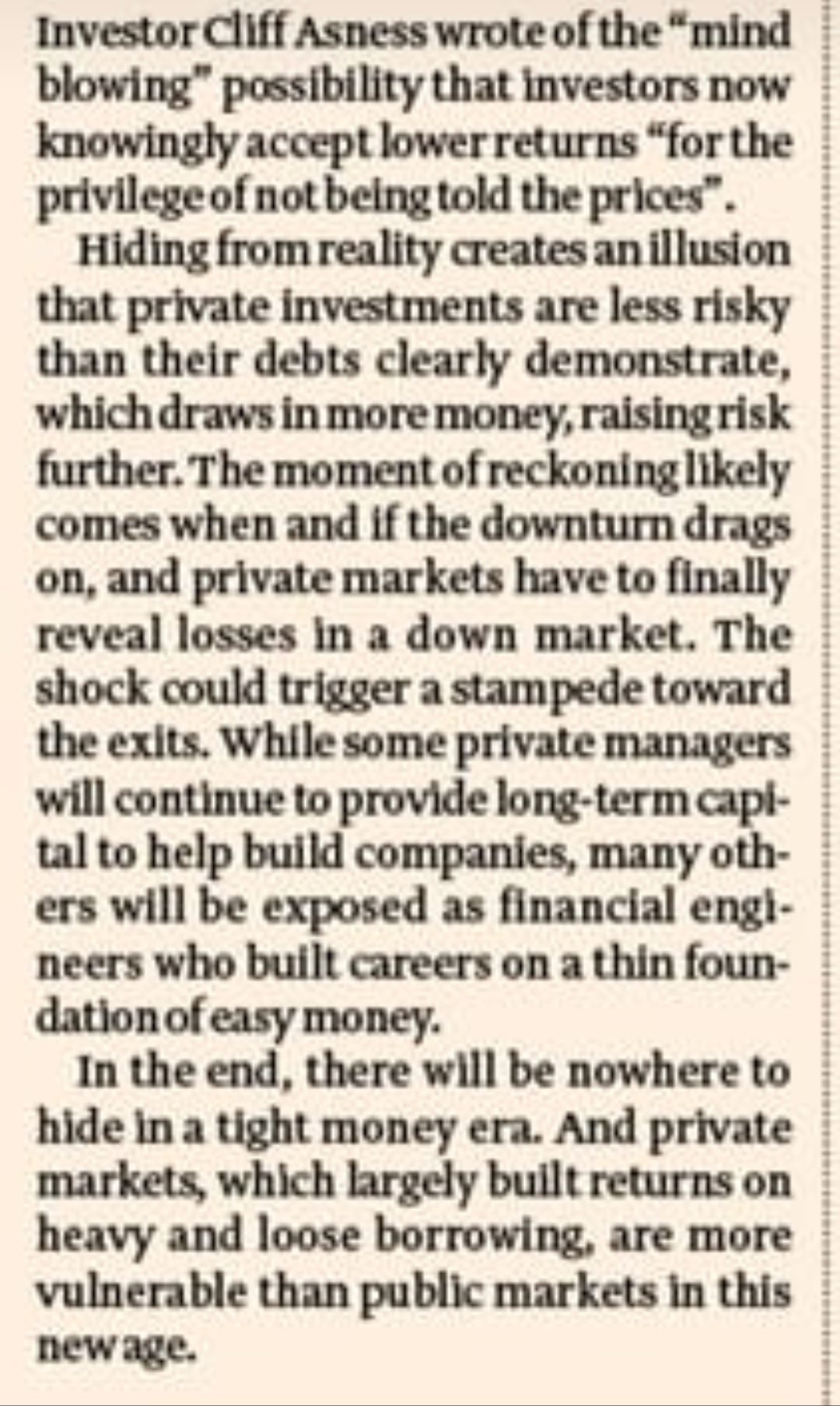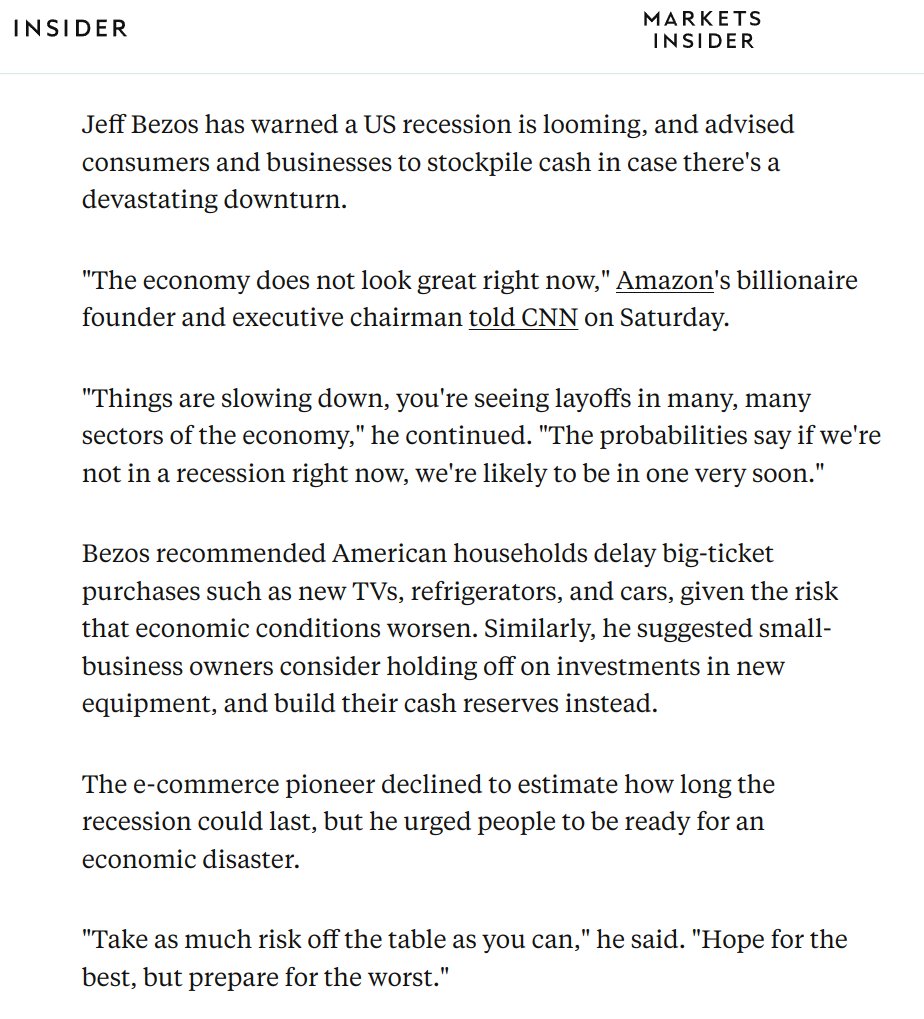
Category: Excerpts
Bubble in Private Markets
What is the role of an Analyst?
Source: Motley Fool
I think too often, young analysts believe that the goal of an analyst is to demonstrate how much they know about a company and build a perfect earnings model. I don’t think I’ve ever seen an analyst model their way to a great stock idea!
I view the goal of the analyst as developing conviction that the consensus is wrong about something important. Then their job is to communicate why they believe they are correct and the consensus is wrong and to compute the valuation impact. Once we own a stock, their job is to actively monitor new information to assess if their view or the consensus view is coming to fruition.
There are a lot of important areas the consensus can be wrong: management quality, business quality, long-term potential differing from current results, valuable non-earning assets, and so on. To make excess profits, you need to hold a nonconsensus view and be right.
-Bill Nygren, Oakmark Funds
Woes of Active Fund Managers
Source: Evidence Investor
Absolute skill may be necessary for success as an active manager, but it is not sufficient. It’s relative skill that determines outperformance and underperformance. It’s not enough to be good at valuing companies; a successful active manager has to be better than his competitors.
If investment management is not unique in this respect, it at least is highly unusual. An average physician may be able to cure most illnesses, and an average lawyer may be a perfectly adequate source of legal representation for most needs. However, investment management is different: an average investment manager is of no value at all. Investing is unusual, in that the collective judgement of all the participants (weighted by the amount of money they control) is… available for free… If a professional investor is to earn excess returns for his client, being good is insufficient — he must be exceptional.
The difficulty is compounded when we consider what happens when assets move from active managers to index funds. Presumably, the least capable active managers lose the most assets. This means that the quality of the surviving active managers rises as assets move to passive alternatives, making the competition for outperformance tougher. Active managers thus find it increasingly difficult to stay above average as index funds cull the weakest competitors.

